- Old Draft: Beatles Folk Memory 1970-1995 - December 8, 2025
- Lights are back on. - December 8, 2025
- From Faith Current: “The Sacred Ordinary: St. Peter’s Church Hall” - May 1, 2023
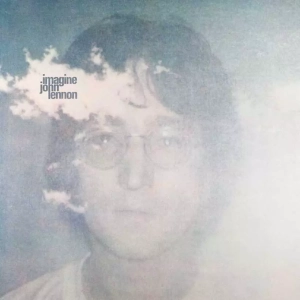
Our John Lennon circa 1971, haunting Gary Abernathy’s dreams.
Because she knew it would get a rise out of me, commenter @Tasmin sent me this cringeworthy Op-Ed from The Washington Post today, which I pass along out of a need to trauma-share. The Bezos-owned WaPo, for any foreign readers, is ostensibly the liberal-est of our oh-so-very-liberal American media, which means its opinions range from far-right, all the way over to center-right whenever the boss is up in space. I do not blame WaPo for this, any more than I expect a man who owns cattle to own a newspaper promoting vegetarianism.
Under the headline “Can’t we ‘Imagine’ a better song for peace and harmony?” contributing columnist Gary Abernathy ladles up a bunch of steaming nonsense not heard since the days of Spiro Agnew. Sure, it’s nice that Julian Lennon recorded a version of his dad’s song in honor of Ukraine, Abernathy says, but if you want a world without religion, without countries, without possessions, you can count him out. “‘Imagine,’ as beautiful as it sounds, has always disturbed me with its overtly anti-religion, unpatriotic recipe for ‘living life in peace.'”
The thing about Utopian visions, Gary, is that they are thought experiments. Adults realize that pop songs are not meant to be taken literally, and bad things happen if you do. (Take for example, Japan’s disastrous experiment with Twisted Sister’s “We’re Not Gonna Take It,” which resulted in their infamous “Lost Decade.”) In the US however, right-wing schemes even without catchy pop songs are tried again and again and again; trickle-down economics, for example, or abortion restrictions, or “more guns lead to a safer society.” (I think John Lennon would have a tart opinion about that last one.) Politically, the US since 1980 is like a Roomba stuck under a chair. Just today Georgia passed a no-license, no-background check concealed carry handgun law. This time we’ll get that “more polite society,” for sure.
On the other hand, “Imagine”‘s no-government, no-religion, no-possessions prescription really hasn’t been tried. And how could it be? There are too many people—perhaps Gary Abernathy knows a few—quite happy to ditch an ostensibly pacifist, antimaterialist religion whenever it suits. (I think Jesus would have a tart opinion about Abernathy’s belief “in the bedrock concept of private property.”) Nothing even remotely like Lennon’s Utopia has ever come to pass; he is certainly not describing China, Cuba, or the USSR. Those societies where there has been no private property have had immense amounts of government control, to the degree that worship of the government has replaced religion. One out of three is not “Imagine.”
Honestly? Abernathy should applaud Lennon’s song—from the very moment “Imagine” was released, the world has gone in the exact opposite direction. Make it the freakin’ National Anthem and maybe William F. Buckley will rise from the dead. Even though we face arguably worse troubles than the world did in 1971, this columnist’s answer is yet more religion (of the right type—I doubt he wants Sharia Law), yet more capitalism, yet more patriotism. A better Op-Ed would be: “Are you addicted to religion, capitalism, and patriotism? Here are the warning signs!”
Don’t get me wrong: like Guinness and fornication, I think religion, nationalism, and possessions are perfectly all right—in moderation. But they are so deeply ingrained in our culture that John Lennon, proud British millionaire, felt he had to write a song encouraging an alternative. And even though that song seems to be creating the opposite effect, people like Abernathy are ever-more frightened. Perhaps it’s not the song?
You have to hand it to American conservatives; through supreme effort (and lots and lots and LOTS of money) we’re now back having the same idiotic conversations people had in 1971, when cynical, corrupt jerks like Agnew and Nixon criticized the longhairs and plumped for a mythical God-fearing, America-loving past unsullied by dangerous ideas. This fantasy is inevitably paired with a paranoia so unreasoning it can’t even crack a dictionary. Abernathy again: “‘Imagine,’ as beautiful as it is, contains troubling imagery for anyone who cares about faith, patriotism and capitalism. And really, we don’t have to imagine this world. We’ve seen it,’ Abernathy writes. ‘It’s called socialism.'”
Dun dun DUNNNN.
Wait. “Socialist” like France or Britain? Or contemporary China? Or Mao’s China? Or Pol Pot’s Cambodia? Or Stalin’s Russia? Or Nazi Germany? All of these countries might plausibly be called “socialist,” depending on how you’re defining it, which means that the term is functionally useless in this context. The more accurate word would be “authoritarian,” and God knows why the WaPo editors didn’t make Abernathy use it. An Op-Ed is not license to willingly mislead through unclear language. These days, the only people who fit Abernathy’s definition are hyper-capitalists like Vladimir Putin who use religion and nationalism to exert control over a heavily propagandized people. To which Abernathy says, let’s give arsonists napalm, and hope the fires magically stop. If it was 1950, with Stalin ruling Russia and Mao China, I’d cut this Op-Ed some slack; but to look around at our world and conclude that what we need is more nationalism, religion, and capitalism is practically a cry for help.
Boo to WaPo for publishing this nonsense. Boo to the editors for not editing it. Boo to privileging such sloppy thinking and raising it to the level of adult discourse. Boo.
The shame of it is, there is a great Op-Ed to be written about “Imagine.” The song, as pleasant and apparently heartfelt as it is, was penned by a man deeply attached to his national identity, wealth and power (and if fame is a religion, that too). John Lennon saw these things did not bring him happiness, and so he wrote a song to help people, himself included, aspire to something better. We have tried a world full of countries and money and God, and it hasn’t worked. Even those who would take issue with the previous statement cannot deny that the planet is on the verge of collapse as the result of human activity beginning around 1800—in other words, since capitalism and nationalism hit turbo, and brought religion along for the ride.
What this article is really about is simple hatred for the Sixties, that’s all. “Imagine” is an anthem of the counterculture, and reflects the ideas of that group circa 1971. It plays essentially the same role as a Christmas carol does for Christians—you know, those songs that you hear constantly from November 1 onwards, without getting hysterical? Would WaPo run my article explaining why I, a lapsed Unitarian, find “Joy to the World” problematic? “This song, as beautiful as it is, contains troubling imagery for anyone who is deeply skeptical about the anointing of any human as savior and born to rule, obeyed without question, and endlessly praised through propaganda. And really, we don’t have to imagine this world. We’ve seen it. It’s called Putin’s Russia.”
“For many of us,”Abernathy writes, “‘Imagine’ is a siren song to the rocky cliffs of destruction.” The problem is, Gary, for everybody else, we don’t have to imagine that destruction. Thanks to too much nationalism, capitalism, and religion, we see we’re already there.

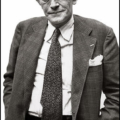

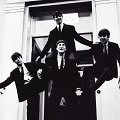




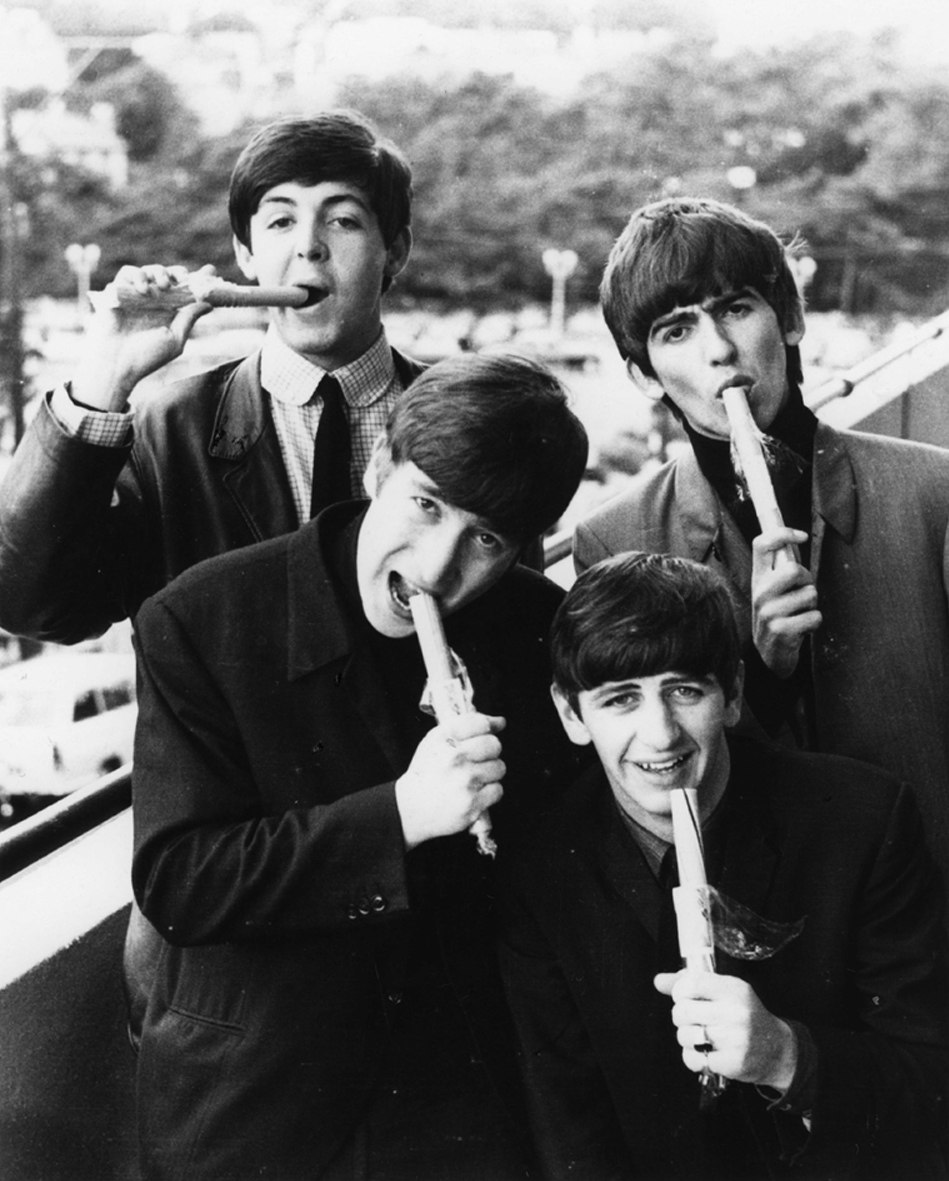
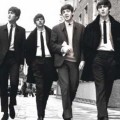

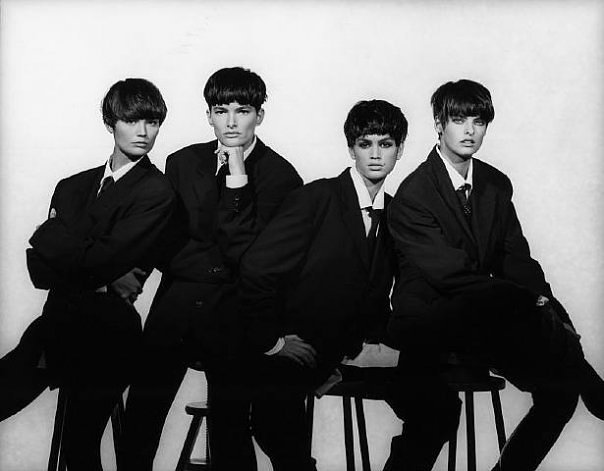
Bravo Michael! I really wasn’t trying to get a rise out of you, but I was definitely trauma-sharing. 😉
The last time I checked, there were 3.1 thousand comments on Abernathys piece. None that I read ( I read through a lot) were positive.
Abernathy says he’s a Beatle fan, and has read a few Lennon biographies. That’s unbelievable to me. If he really understood John Lennon, he could never have written that. Like someone commented, “He’s a Boomer who claims the Beatles, but votes against everything they stood for.”
“Boo to WaPo for publishing this nonsense. Boo to the editors for not editing it. Boo to privileging such sloppy thinking and raising it to the level of adult discourse. Boo.”
Unfortunately, WaPo has taken a right(er) turn with the new Editor, Sally Buzbee. I’ve written to her to complain, but unfortunately, the MSM is all about money, and clickbait headlines. It’s extremely depressing.
Thank you for writing this Michael. It’s important for people to realize where we are at in society today, and you summed it up beautifully in your last paragraph:
“For many of us,”Abernathy writes, “‘Imagine’ is a siren song to the rocky cliffs of destruction.” The problem is, Gary, for everybody else, we don’t have to imagine that destruction. Thanks to too much nationalism, capitalism, and religion, we see we’re already there.”
When people start attacking “Imagine”, a song about peace, love, and understanding, we’re in big trouble.
@Tasmin, Abernathy’s reaction to “Imagine” is classically Fascist, though I think he’d bridle at that loaded (and probably debased through overuse) language.
This is from Umberto Eco’s 1995 essay, Ur Fascism, and it’s one of several points that Eco’s makes that are applicable to Abernathy’s article:
“9. For Ur-Fascism there is no struggle for life but, rather, life is lived for struggle. Thus pacifism is trafficking with the enemy. [Italics mine — MG] It is bad because life is permanent warfare. This, however, brings about an Armageddon complex. Since enemies have to be defeated, there must be a final battle, after which the movement will have control of the world. But such a “final solution” implies a further era of peace, a Golden Age, which contradicts the principle of permanent war. No fascist leader has ever succeeded in solving this predicament.”
I’d be interested in what the establishment reaction was to Imagine when it was first released.
I haven’t read “Ur Fascism”, but I am going to. Unfortunately, we, and other Democratic countries, are going in that direction.
“This, however, brings about an Armageddon complex. Since enemies have to be defeated, there must be a final battle, after which the movement will have control of the world.”
This is exactly what the Evangelical, White, Christian Nationalist movement is all about.
It’s pretty sad that “Imagine”, a song written 50+ years ago, is being targeted by Fascists. What’s next? Burning Beatle records?
@Tasmin, the Beatles are inherently anti-Fascist, and Fascists know it. (For example, when the Greek military junta came to power after a Fascist coup in 1967, two things they outlawed were long hair and Beatles records.)
You would think, but I offer this sobering counter example:
I am also something of a John Denver devotee, albeit in a much lower orbit than the Beatles, and there are a starting and troubling number of people in John Denver fandom who are convinced he would have supported Trump. (So many that I finally disengaged completely with any sort of online JD fandom, it was too depressing).
This in spite of JD’s clear and consistent track record of support for left-leaning causes, involving himself as a spokesman in the peace movement during the 60s, having worked closely with President Carter on world hunger, and having been consistently outspoken against Reagan and the Right during his lifetime.
People see what they want to see. ‘Twas ever thus.
Not the individual Beatles—John for example seemed to have little problem with Reagan—but the group and their music. That seems to press Fascist buttons. Why is a large question.
Art is always the enemy of fascism. It’s just they don’t always seem to notice. Fascists are annoying that way.
@Faith…considering that the far-right is waiting for strong Democrats JFKs Sr and Jr to rise from the dead to restore trump to power and rule with him forever and ever, their beliefs about John Denver do not surprise me.
This in spite of JD’s clear and consistent track record of support for left-leaning causes, involving himself as a spokesman in the peace movement during the 60s, having worked closely with President Carter on world hunger, and having been consistently outspoken against Reagan and the Right during his lifetime.
Don’t forget his being the unexpected (for many) and rather articulate opposing witness, alongside Frank Zappa and Dee Snider, at the PMRC hearings. Made quite an impression in his clean-cut suit. His statement to the Committee is still used as a favorable example of American rhetoric today (hence the website where it’s hosted).
Indeed!
I did a very deep year-long dive into JD awhile back with the thought of perhaps writing a book. One of the things that struck me the most was how he adroitly leveraged his mainstream image and access to the living rooms of middle America to send some very subversive messages about social justice, environmental justice, war and peace, etc. He was able to do that, I think, because he was a wolf in sheep’s clothing and all those unsuspecting middle class folks didn’t even know they were getting a slice of left-leaning thinking along with their “safe” entertainment. He could reach them in ways that the more obviously counterculture people like Dylan, etc. couldn’t.
Of course, if you watch the brilliant six-episode BBC series he did in 1970 before he became famous, he doesn’t even try to hide the agenda…
And now I feel like I need to link this to the Fabs so as not to be totally off topic… maybe just by saying I find it fascinating that JD became the top selling artist in the world not too long after the Beatles breakup. I’ve occasionally considered what that means, culturally speaking. I have no deep thoughts on it, though.
Anyway, there’s a lot there beyond what people know about and I have a deep cuts JD playlist that I’m always looking for an excuse to share should anyone ever want it.
I’m a Post subscriber, and I’ve learned never to read Abernathy’s pieces. They are all “aw shucks, this is what REAL AMERICANS believe,” and he was very proud of being among the first to enthusiastically support Trump in 2016. He had a brief period of nearly acknowledging Trump’s authoritarian tendencies after January 6; it is not surprising he’s right back where he started from.
Michael, saying that “Politically, the US since 1980 is like a Roomba stuck under a chair” is only too accurate. I’d just add that it’s a horror-movie Roomba with a drill attachment steadily undermining the structures that are holding up democracy.
I’ve never liked “Imagine” that much; when it comes to utopian dreaming, I prefer “Give Peace A Chance.” But the way the ideas in “Imagine” set the right wing off is really something to behold. God and America are completely fused in the right’s imagination, and it’s terrifying. Kristin Du Mez’s book Jesus and John Wayne is the best analysis I’ve read of this dynamic.
I fear that the Far Right Q-nuts will eventually find a way to appropriate the Beatles just as they apparently found a way to appropriate JFK and Jr. If that happens, drastic measures will be called for….
They will do it via Paul is Dead.
I suspect you’re right. I’m not sure if that’s better or worse.
I would be fascinated by the whole Q thing if it weren’t so damned dangerous.
“Michael, saying that “Politically, the US since 1980 is like a Roomba stuck under a chair” is only too accurate. I’d just add that it’s a horror-movie Roomba with a drill attachment steadily undermining the structures that are holding up democracy.”
I loved that too, and your addition to that Nancy, is great, and spot on!
Thank you for mentioning the book “Jesus and John Wayne”. I’ve heard of it, and will put it on my reading list.
I too try to avoid some of the right wing writers at WaPo, but I got sucked in by the title, and of course, it was Beatle related.
Wow! What a really well written and well thought out rebuttal! Well done, Mr Gerber!
@Steven you are very nice to write that. I’m very glad you enjoyed it!
Outstanding dissection of the Abernathy piece Michael.
Abernathy’s scrawl reminds of the quip from late physicist Wolfgang Pauli who, when asked about another physicist’s theory, remarked: “It’s not good enough to be bad. “
For a brief period a few years ago, I had a mild obsession with the relationship between Carl Jung and Wolfgang Pauli. Thinking back now, I see a lot of the same Paul/John dynamics in their interactions.
There are a few excellent books on their work together, correspondence, etc. Highly recommended for anyone interested in another example of a partnership in which two restless, volatile, iconoclastic geniuses collide.
Come for the Beatles and stay for the Jung-Pauli correspondence on Synchronicity. How cool is that!
Thanks for that recommendation Faith. I have been looking for something new to read and that sounds interesting.
My pleasure, Neal!
There are a few Pauli/Jung books out there. The best one I’ve found is called Pauli and Jung: The Meeting of Two Great Minds by David Lindorff PhD
A few months ago there was a problem that some of us were having when trying to access the Recent Comments page. It resulted in a redirect to a spam page.
At least for me this is occurring again and I am fairly confident that it is not my browser(s).
Wasn’t sure how to bring this to the attention of Nancy or Michael so I just put it here worth the hope that they would see it when they moderated this.
Anyone else having this issue?
Thanks, Neal. It’s been hard to determine why this happens; we’ll see what we can do.
On the topic of bad takes on Imagine I’m so glad this man is going to become a majority shareholder of Twitter (I say with sarcasm) https://twitter.com/elonmusk/status/1510435042694250499?s=21
I agree John wrote the song to reflect the culture of the times he wrote it in, but the song has become-amplified by his death- a broader song for peace and harmony which is why Julian likely sang the song and not to promote socialism, and I have no doubt the WaPo writer knows that, he even says as much, so his article just feels like a fake intellectual version of the same kind of pointless nonsense as Elon tweeting Inagine memes to me honestly.
Also agree Nancy I too can listen along to Imagine and admire its message but wouldn’t say I love it as a song. I think songs like Gimme Some Truth, Instant Karma and Nobody told me are more politically current even if they weren’t specifically political anthem type songs and agree Give Peace a Chance is a better peace anthem. As an aside, for being the seminal song that has outlived him and continues to define him, it’s kind of amuses me in a curious way how mostly ambivalent John was to Imagine.
I agree. LeighAnn. Imagine is a gorgeous song, but to me, it feels more like a John Denver song. And I say that as someone who adores John Denver, recognizes his considerable talent as a songwriter, and who spent a good year obsessed with him not that long ago..
But it’s too soft to be John’s signature song. It has none of his acerbic bite, none of his wit and word play. And the sentiments are much too simplistic and one dimensional to reflect John’s lyrical genius or his worldview.
Of course he is remembered for all of that, particularly with his Beatles songs, and always will be I think, but I agree that his signature song should be something with more edge.
I think John would cringe at that. When asked about Paul’s guitar skills during his 1980 Playboy interview, he mentioned John Denver in an “Engelbert Humperdinck” kind of way, even as he praised Paul’s bass playing. He wasn’t about to bow down to his guitar playing, too. I can’t imagine being obsessed with John Denver of all people (he seems so innocuous when not behind a wheel), although I liked him as the straight man to George Burns’ God.
“Imagine” is John’s signature song, but it both absolutely should and absolutely shouldn’t be.
It’s crystalline and perfect and so tragically, awfully limiting.
Such is the paradox of Mr. Lennon.
I mean, that’s what you hear if you hear his music at all on Top 40 radio and that’s what Yoko is promoting and that’s what gets all the push of ‘John is a man of peace and love’, but he was also a man of violence and reformation and grief and anger and confusion and joy and Sesame Street and I think it does a disservice to reduce his image to that because so many people can either brand him as a socialist or as a hypocrite and he was neither yet both.
“Imagine” is a lot like John Lennon himself: beautiful yet contradictory, idealistic get confused, depressed yet hopeful.
I’m glad it’s here, but it might be nice to open the window a little wider to let in more than just the Cloudy Blue Sky.
100% agreed @Mia, and one thing the Estate has never quite figured out is that it is Lennon’s multifaceted nature — his contradictoriness — is what makes him likely to last as a cultural figure. “Imagine” is soggy-though-well-meaning polemic, the meek longings of a cosseted rock star, which is why it’s so quickly trotted out by contemporary rock stars in the face of conflict. It is a STANCE, it is PR.
When I clicked on the Paul Linda Keyboards article my computer announced it was beginning a download. I don’t know what it was trying to download, but I closed the browser quickly. For a few days after, every time I’d shut down my computer it would tell me “but there’s a download in progress, are you sure?”
Makes me somewhat wary of visiting DullBlog. Maybe I’m being too wary, I don’t know. But something’s going on here.
I remember a few years ago when all the vowels were removed from our comments for a day or so. I joked about it at the time, but I feel there’s some sort of malicious attack on this place happening periodically.
I’m really baffled by this and am keeping in touch with the person who’s helped us with some backend issues — the problem is that attacks proliferate and change frequently, and of course we don’t have a full-time IT person.